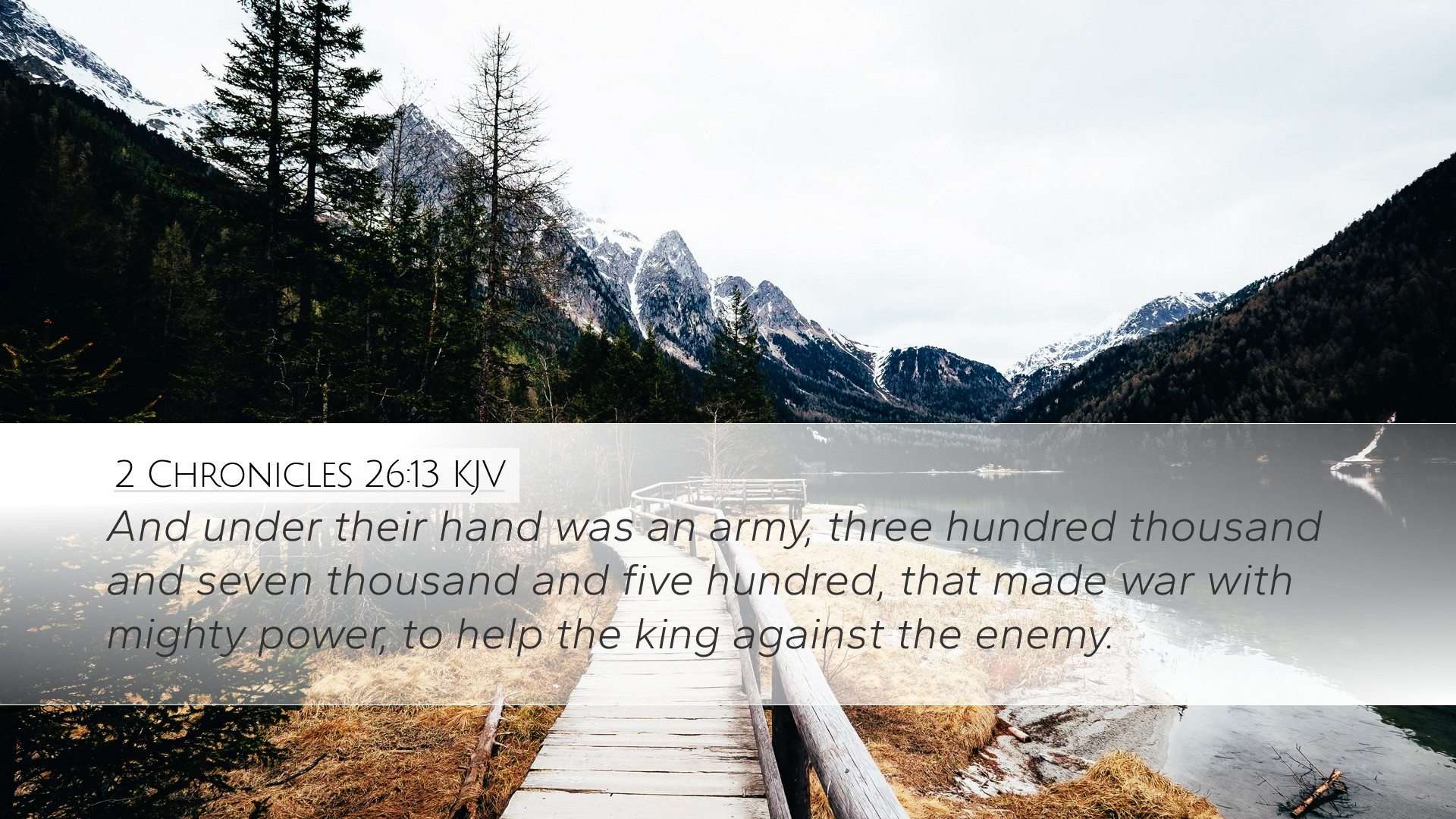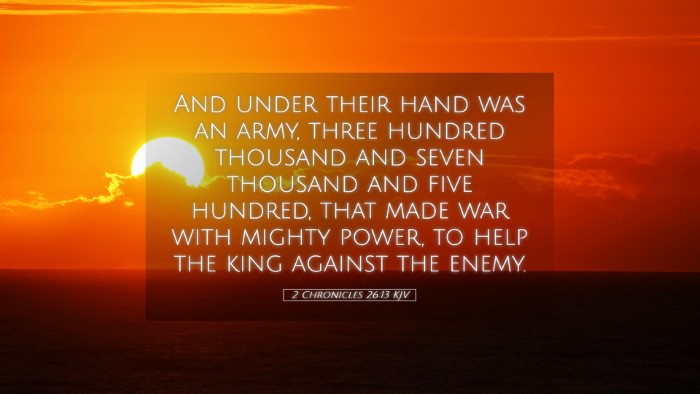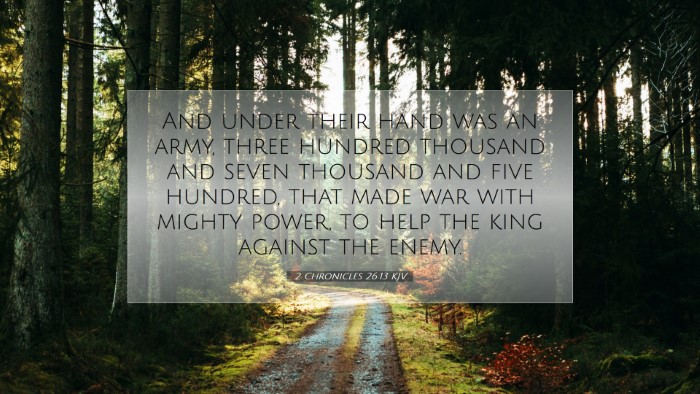Commentary on 2 Chronicles 26:13
Bible Verse: “And under their hand was an army of three hundred thousand and seven thousand and five hundred, that made war with mighty power, to help the king against the enemy.”
Contextual Overview
The passage found in 2 Chronicles 26:13 is set within the reign of King Uzziah of Judah, who is noted for his military prowess and faithful reign before his pride led to disaster. This particular verse highlights the organizational strength of his military forces, illustrating the scale of his army and the effectiveness of his reign.
Insights from Public Domain Commentaries
1. Matthew Henry's Commentary
Matthew Henry emphasizes the significance of Uzziah’s military organization, pointing out that God had blessed him with strength and wisdom to lead such an extensive army. Henry notes that the “mighty power” attributed to Uzziah’s forces reflects both their physical might and the favor of God upon him at that time. God granted him not just warriors but also strategic acumen in warfare.
Henry draws attention to the importance of unity in the army's purpose. This “mighty power” was not merely a description of the number of soldiers but also their collective dedication to supporting the king against enemies. This highlights a spiritual principle of unity under divine authority, applicable to church leadership today.
2. Albert Barnes' Notes on the Bible
Albert Barnes elaborates that Uzziah’s army consisted of skilled men, equipped for battle, reflecting thorough preparation and training. The verse indicates that Uzziah effectively utilized local resources to gather such a formidable force. Barnes notes that the military structure under Uzziah contrasts sharply with the chaos often mentioned in prior narratives of Israel's leadership.
Furthermore, Barnes points out that the size of the army, described specifically as “three hundred thousand and seven thousand and five hundred,” indicates not just mere quantity, but an orderly arrangement of forces, allowing for effective military strategies. Barnes challenges contemporary readers to consider the importance of being well-prepared and committed in their spiritual battles.
3. Adam Clarke's Commentary
Adam Clarke provides an analytical view of the army’s composition, suggesting that the figures presented indicate a deliberate and structured military hierarchy that Uzziah implemented. Clarke asserts that the effectiveness of an army is not merely in numbers but also in the leadership, discipline, and training of its men, calling attention to the necessity of capable leaders.
Clarke further emphasizes the juxtaposition of Uzziah's military success with his eventual downfall, illustrating a commonly observed pattern in the biblical narrative where great power leads to pride. He warns that this passage can serve as a reflective lesson for leaders, urging them to remain humble and acknowledge their dependence on divine strength rather than their own.
Theological Reflections
This verse serves as a reminder of the responsibilities and challenges faced by leaders in the church and society. The size and preparedness of Uzziah's army can be seen as a metaphor for the church's need for readiness and collective strength in facing spiritual warfare. Just as Uzziah utilized the resources provided by God, modern leaders are called to recognize and mobilize the gifts and talents within their communities.
The implication of God’s favor is crucial when examining Uzziah’s military successes. The acknowledgment of divine support in any endeavor can foster humility among leaders, reminding them that their achievements are ultimately rooted in God’s grace. This encourages leaders to rely less on human wisdom and more on prayer and seeking God’s guidance.
Practical Applications
- Preparation: Just as Uzziah prepared his forces, church leaders should prepare their congregations through teaching, training, and equipping them for ministry.
- Unity: The mention of a unified army illustrates the need for cooperation and teamwork in ministry, emphasizing that success is more likely when believers work together.
- Humility: The warning of pride leading to downfall is a critical reminder for all in positions of authority; leaders must constantly check their hearts against arrogance.
- Divine Dependence: Recognizing that success is dependent on God’s provision encourages ongoing reliance on prayer and submission to His will.
Conclusion
2 Chronicles 26:13 encapsulates significant truths regarding leadership, preparation, and reliance on God. The insights from Matthew Henry, Albert Barnes, and Adam Clarke bring to light how the narrative of Uzziah serves as both a historical account and a timeless lesson for contemporary readers. Leaders, pastors, and theologians are encouraged to not only draw inspiration from Uzziah’s capabilities but to heed the warnings that accompany prideful success.


